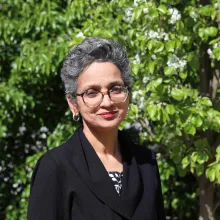The public life of numbers
This research aims to improve the public communication of statistics, by understand how those working with public numbers think about their work, and the lifecycle of numbers in public debate.
Research themes
Project status
Content navigation
About
The truth is that counting has proved to pay.
—"Then do you want to say that 'being true' means: being usable (or useful)?"
—No, not that; but that it can't be said of the series of natural numbers—any more than of our language—that it is true, but: that it is usable, and above all, it is used."
— Wittgenstein, 1956, Remarks on the Foundations of Mathematics.
Final thesis presentation
The final presentation for this project was held 10 November, 2021. The abstract was as follows:
Aliis exterendum: the pervading statistical mindset in Australia's civic epistemology
"Recent years have both accelerated our dependency on data for decision-making, and exacerbated concerns with the trustworthiness of such data and their generating institutions. In Australia, we find a dense and centralised public debate, with a lingua franca of quantitative evidence: statistics, tables, charts and modelling. In this final thesis presentation, Samantha Vilkins will discuss her conclusions drawn from 49 semi-structured interviews, investigating the co-production of Australia’s civic epistemology with the daily decisions of public data professionals.
The thesis argues that, far from a scrapped initial motto of the first London Statistical Society, 'Aliis exterendum', (‘to be threshed out by others’), is a mindset still pervading all quantification projects, where long-forged, close-held domain knowledge is abstracted and traded in for the utility of data — made interoperable with all and manipulatable by any. This approach manifests in day-to-day heuristics, under instincts to make data clearer and cleaner for different audiences and contexts. Recognising these mechanics may allow the growing number of concerned data professionals to navigate how they can minimise harm in their work. Against the draw of ubiquitous utility, there may be hope for regulation of data that works for all of us — somewhere between wholly un-quantifying and allowing the statistical mindset to run unchecked."
A recording is available. Please contact samantha.vilkins@anu.edu.au for a copy or any further information.
Project description
This research aims to improve the public communication of statistics, by understanding how those working with public numbers think about their work, and the lifecycles of numbers in public debate.
Modern policymaking is increasingly reliant on numbers, as all kinds of quantified evidence are used in every stage of introducing, framing, comparing, evaluating and ranking alternative options. Over the past few centuries, there has been a shift from decisions made on moral or value judgements, to decisions made on statistics.
In Australia, our increasing demand for statistics is tied to public advocacy for more evidence-based policymaking from policymakers and researchers alike. However, while statistical techniques have been crucial in improving the lives of their studied subjects, they can become powerful tools used to define how we think about certain issues. Statistics, either in their usage or abusage, are potent in politics.
Drawing from semi-structured interviews with a range of professionals, this research analyses the challenges and potential solutions for communicating statistics in public debate. Particular focus is given to the clashing aims and values that make broad improvement attempts so difficult: Whose responsibility are public numbers in Australia?
Project files
ANU Human Ethics Protocol 2019/266.




